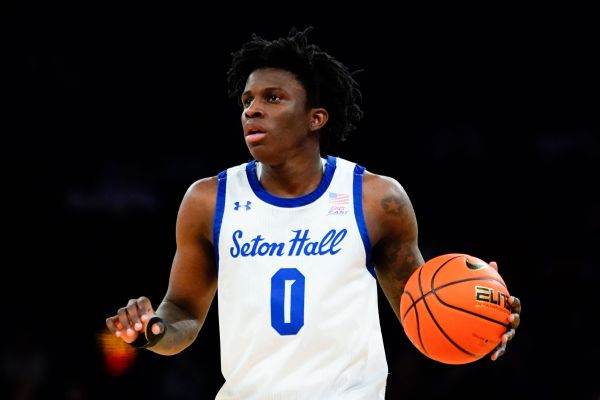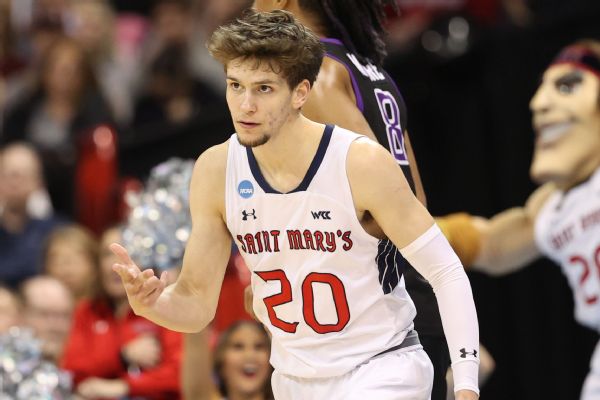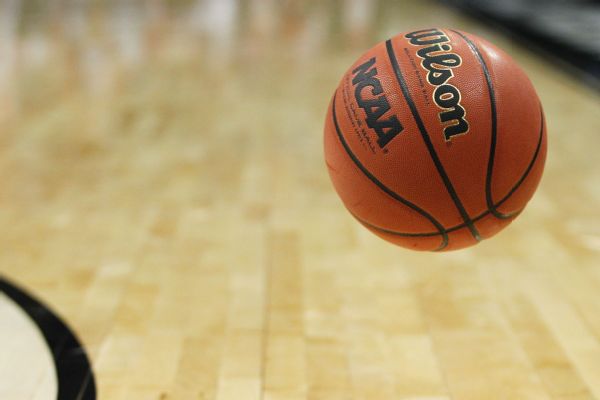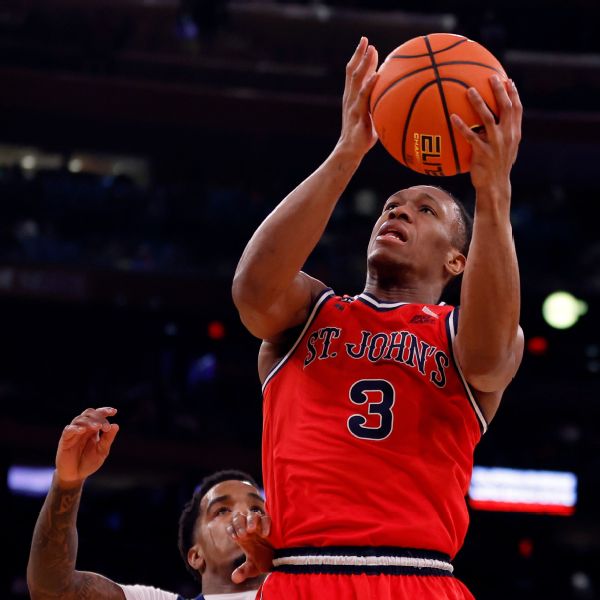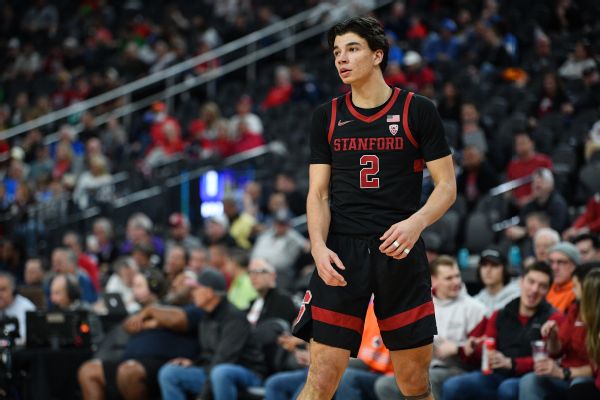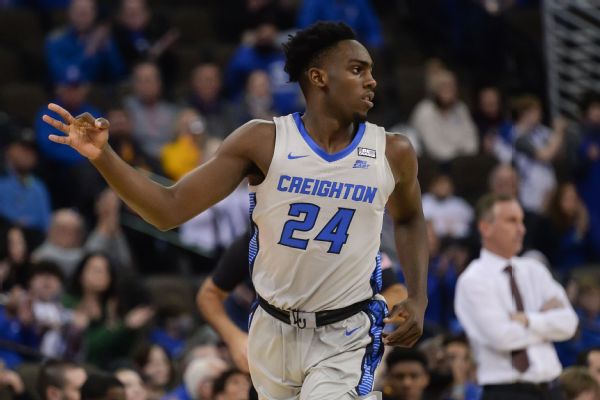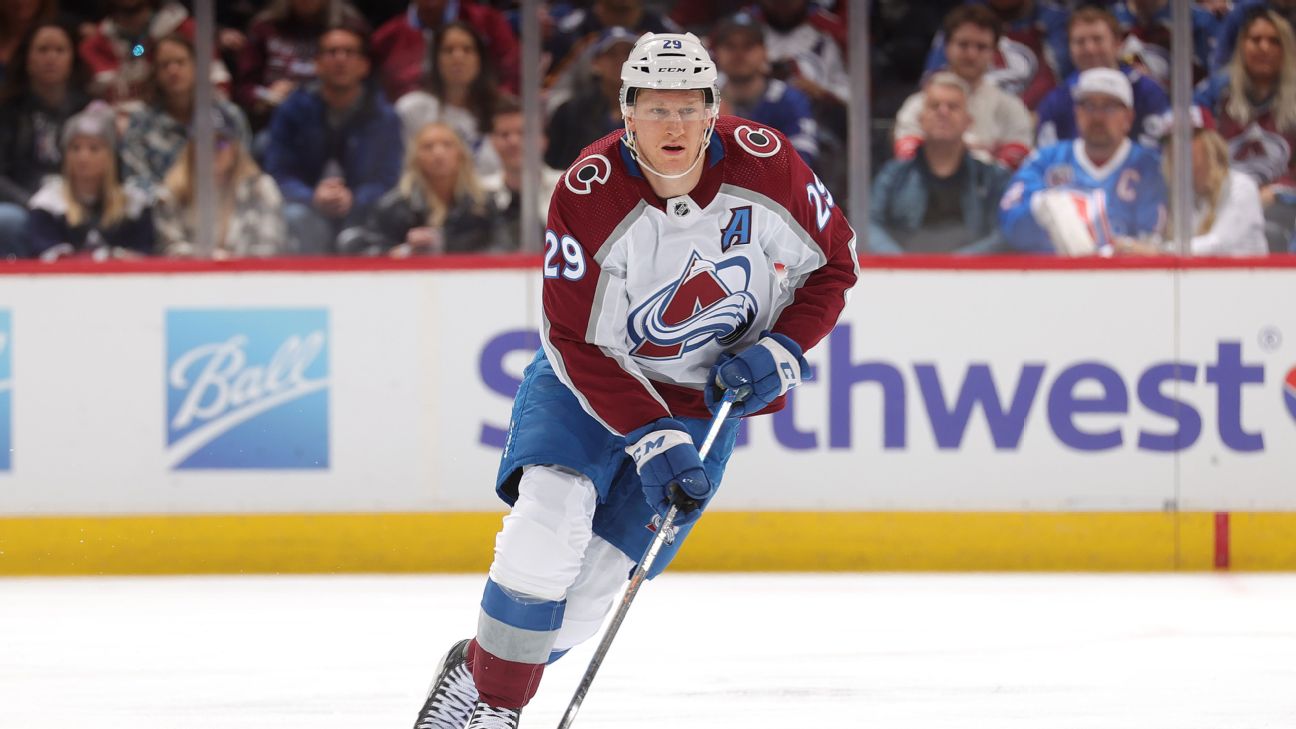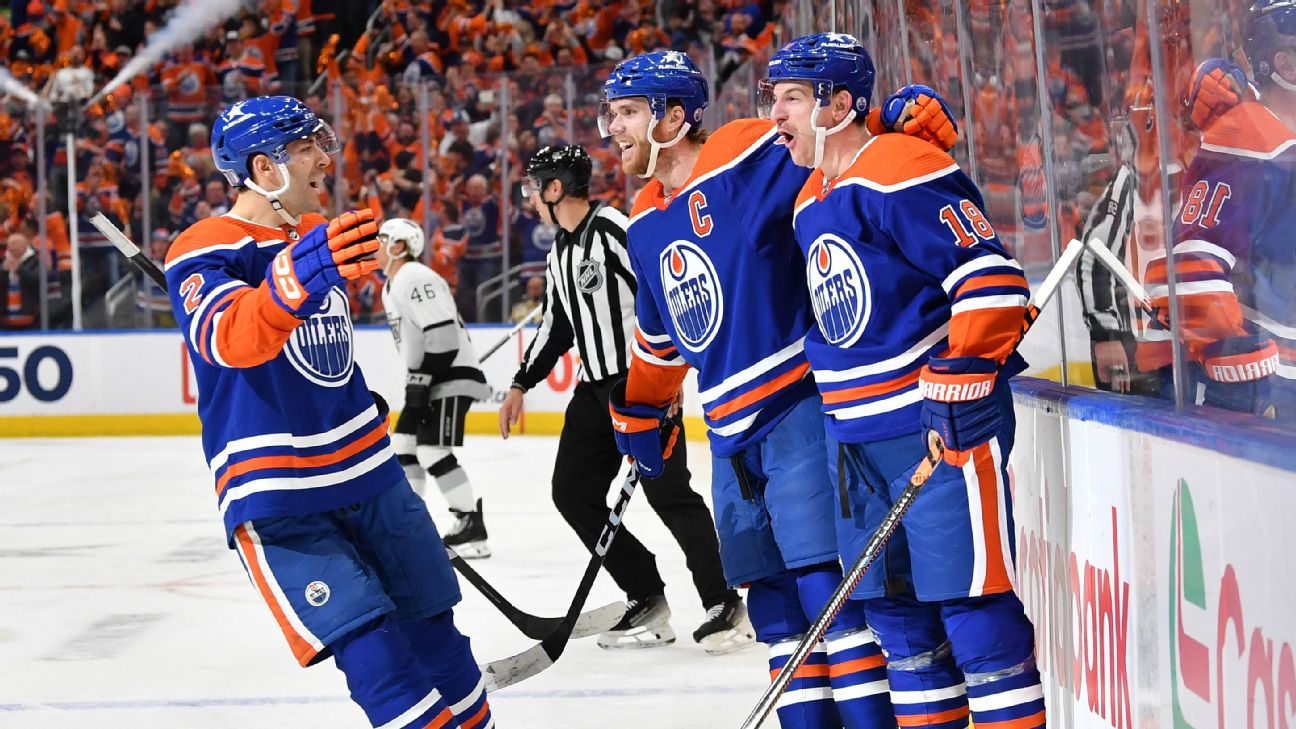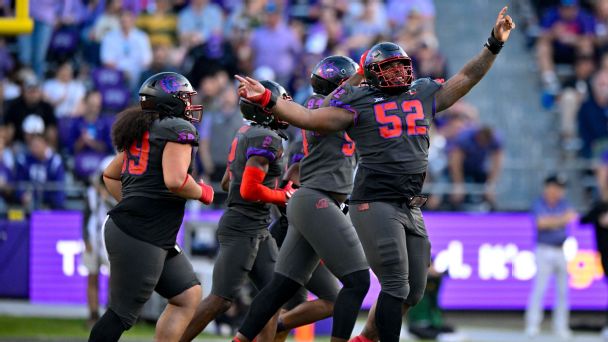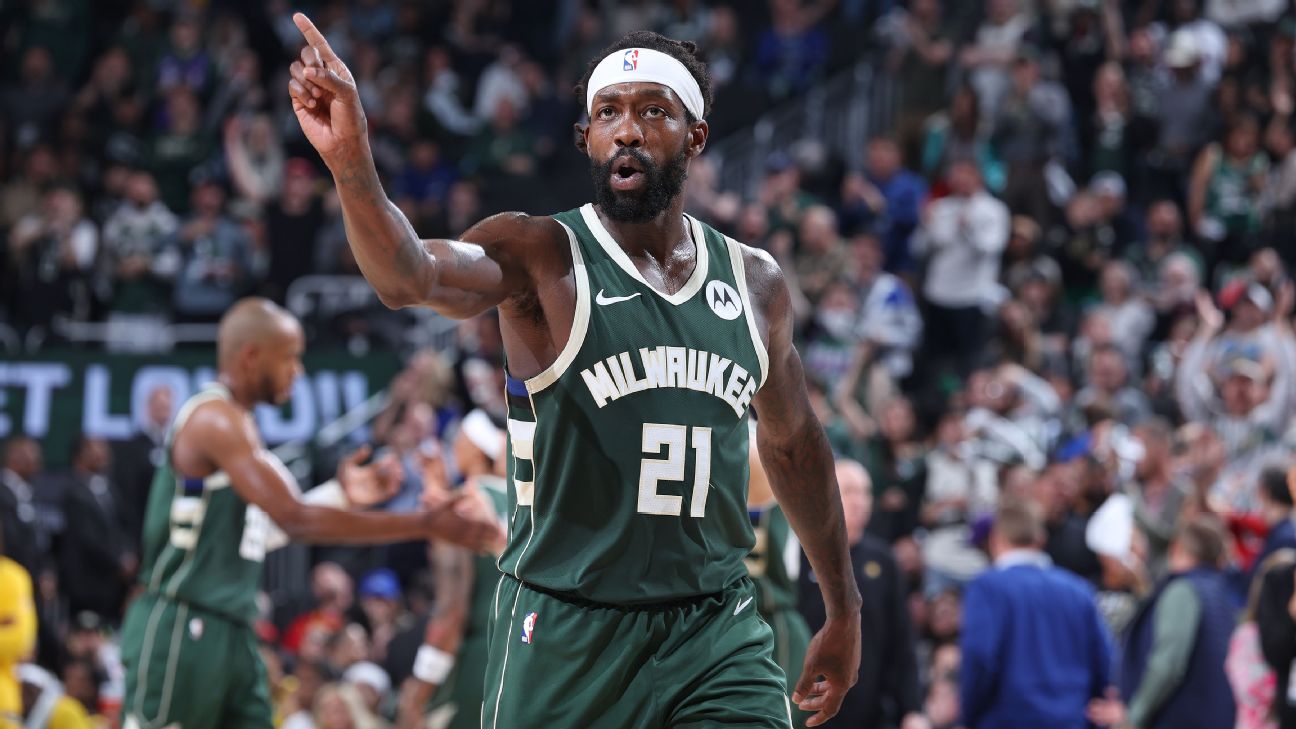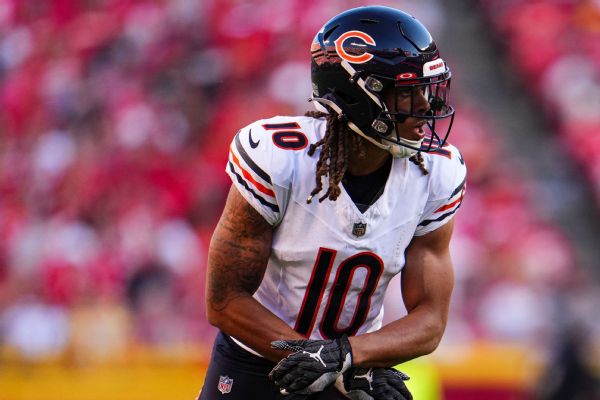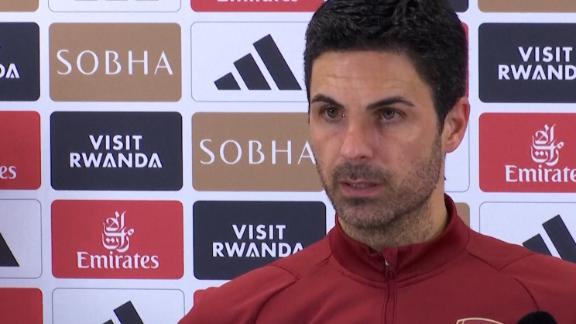![Jurassic Park [608x342]](https://a.espncdn.com/photo/2024/0419/r1321158_608x342_16-9.jpg)
Australia replace India as No 1 Test team in ICC rankings after annual update
Hockey might be Canada's most popular sport, but the country hasn't had much luck lately when it comes to hoisting the Stanley Cup.
It's been over 30 years since the last time a team from north of the border managed to win an NHL title. In the 1992-93 season, the Montreal Canadiens, led by Brian Bellows, Patrick Roy and Guy Carbonneau, lost only four playoff games en route to their record-setting 24th Stanley Cup title.
Only six Canadian teams have made the finals since then, and though several have come achingly close, none has been able to bring Lord Stanley's Cup home. Five teams -- the Vancouver Canucks, Edmonton Oilers, Winnipeg Jets and Toronto Maple Leafs -- are hoping to end that drought in 2024 Stanley Cup playoffs.
The world was a far different place the last time the Canadiens made Canadians NHL champions. Here's a look back at what the world was like back in 1993.
'Jurassic Park' rules the cinemaIt seems like there's a new "Jurassic Park" movie every few years, but when this Steven Spielberg-directed thriller came out, it was one of a kind. The cast was loaded, with Sam Neill, Laura Dern, Jeff Goldblum, Richard Attenborough, BD Wong, Wayne Knight and Samuel L. Jackson all delivering great performances. Velociraptors and a T-Rex were the real stars, however, with a perfectly blended mixture of practical effects and CGI creating some of the most convincing movie monsters audiences had ever seen. The film grossed nearly a billion dollars on release and won Best Sound Editing, Best Sound Mixing and Best Visual Effects at the Academy Awards.
The PDF is releasedWe've all encountered Portable Document Format files through work, school or helping less computer-savvy relatives access one. Adobe released the first commercial version of its now-ubiquitous file format on June 15, 1993 -- less than a week after the Canadiens won the Stanley Cup.
'I Will Always Love You' tops the chartsOriginally written and recorded by Dolly Parton -- who composed it on the same day she wrote "Jolene" -- the song received new life when Whitney Houston's soaring rendition was released on the soundtrack for her film debut, "The Bodyguard." Though it came out in November 1992, the song's momentum carried it to the top of the Billboard charts in 1993.
Spam is bornThough unwanted mass messages have a far longer history, 1993 marked the first time they were called "spam." Richard Depew, a moderator for the USENET group news.admin.policy, accidentally posted 200 messages to the newsgroup. A user named Joel Furr referred to the deluge as "spam," and the term persists to this day. Furr's unintentionally influential post still exists -- you can read his note here.
Michael Jackson rocks the Super BowlThe Dallas Cowboys defeated the Buffalo Bills 52-17 in Super Bowl XXVII, with Don Beebe stripping Leon Lett for a touchback on Lett's fumble recovery serving as virtually the only highlight for the AFC squad. The real entertainment occurred at halftime, however, when Michael Jackson commanded the audience's attention by holding his pose for what seemed like an eternity after emerging from center stage. Jackson then performed a medley that consisted of hit songs such as "Jam," "Billie Jean" and "Black or White" before closing with "We Are The World" and "Heal The World." Ratings increased for the Super Bowl between the first and second halves, the first time that happened in NFL history.
The only thing they fear is Doom1993 was a banner year for video games, with Myst, Mega Man X, Master of Orion, Star Fox, Disney's Aladdin and The 7th Guest making their debuts. Perhaps the most influential, however, was Doom, Id Software's first-person shooter that allowed players to take control of the eponymous "Doomguy" as he mulched his way through hordes of demons on a journey from Mars to hell. With its cutting-edge 3D graphics and intense multiplayer experience, Doom was a phenomenon, leading several universities to ban the game from their networks after students overloaded them playing deathmatches.


